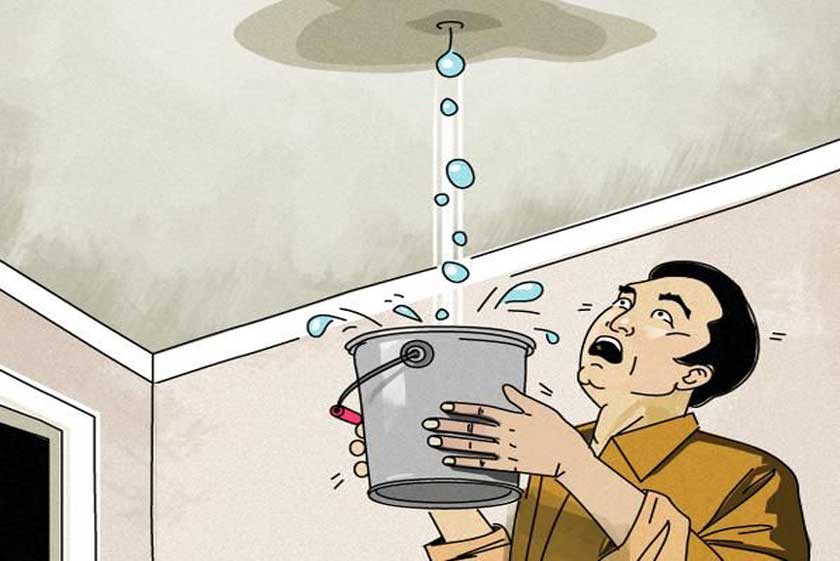How to Resolve Disputes with Your Renovation Contractor?
This article discusses some important considerations when hiring a renovation contractor, and how to handle disputes with your contractor
Disputes are inevitable when a homeowner hires an inexperienced or incompetent contractor to renovate his/her home. This article covers some vital consideration to help you choose the right contractor, along with some helpful ways of resolving any disputes you may have with your contractor.
Important Considerations
1. Select an Accredited Contractor
By selecting an accredited contractor, you are starting out on the right foot. There are specific organisations that offer accreditation schemes to contractors. These are the Renovation and Decoration Advisory Centre (RADAC) and CaseTrust. Member contractors are accredited by these organisations, attesting to their high standards of conduct.
2. Have a Signed Contract Before Starting Renovation Works
You and your renovation contractor should definitely have a signed contract before any work starts. Carefully review the contract, so that you understand your rights and responsibilities and agree with all the terms before signing. Make sure you keep a copy, so that you can refer to it later.
Contractors typically offer their clients standard term contracts, usually the CASE model agreement. We do not recommend that you sign one of these or the contractor’s own contract because it’s likely been drafted to favour the contractor, not you.
Carefully Review Your Contract
Your renovation contract should specify in very clear language the terms that legally bind the homeowner and the contractor. There are specific types of works that must be approved by or have permits from BCA or HDB ahead of time. Your contractor is legally required to abide by the renovation contract.
In your initial discussions with your contractor, he may have made some promises that go beyond the scope of work spelled out in the contract. Keep in mind that oral promises are just words, so they are unlikely to be enforceable. Get everything the two of you have agreed to in writing within the body of the contract.
No matter what, contractors and/or their representatives are not allowed to make false claims, whether spoken or written with regard to their client. If they lie anyway, they can expect a lawsuit to be brought against them by the homeowner.
Contractual Terms
- Payments: Pay your contractor as work progresses and never fully upfront.
- Commencement & Completion Dates: To keep the project on schedule the start date and completion dates should be spelled out in the contract. A schedule should be set for the completion of each phase of the project.
- Liquidated Damages: This is a clause in the contract spelling out how much money in damages either party would have to pay the other for breaching the contract. If the contractor is in breach, the homeowner has a right to claim the specified amount of money in the contract for liquidated damages rather than being forced to calculate after the fact exactly how much his/her losses were worth.
- Variations: Unless there is a variation clause in the contract, the homeowner has no right to ask the contractor to change the works. And if the contractor agrees to make changes, he has a right to charge more money and/or delay completion unless there is a variation clause.
- Warranties: This is a form of guarantee on the quality of workmanship and materials.
- Rectification of Defects: This obligates the contractor to correct any defects prior to handover.
- Dispute Resolution: A clause in the contract that states that any dispute will be settled in mediation. Both parties would need to agree to this, and the matter would be referred to the Consumers Association of Singapore (CASE) or another neutral mediator.
3. Supervise the Renovation Works
Throughout the renovation, you need to personally supervise the works, so that you can immediately discuss any concerns you have with your contractor. If you notice defective work, collect the evidence for future use. Withhold progress payments until you know that the works are completed to your satisfaction.
4. How to Change Contractors
If you are dissatisfied with your contractor and want someone else to finish the works, you must discuss this with your current contractor, so that the two of you can mutually agree on terminating your contract and on the payment. Next, speak to your new contractor about the requirements to complete the renovation, apply for another HDB permit if needed, and change the locks on your house as a precaution.
Handling a Dispute with Your Contractor
Should a dispute arise with your contractor, you should discuss the issue(s) with your contractor or whomever is responsible in an attempt to work out a solution.
Carefully review your contract to determine what steps you can take to give the contractor or responsible party an opportunity to rectify the defect, so that the dispute can be resolved amicably.
Third-party Vendors or Subcontractors
If the dispute involves defective materials, your contractor may not be responsible if those materials were supplied by a third-party vendor that you found.
If the substandard or defective works were done by a subcontractor, you need to check the contract you signed to see who is responsible for the subcontractor’s defective works. Review the terms set forth in your contract to see whether your main contractor is liable for the defective works of the subcontractor or if the subcontractor himself is responsible.
Lodge a Grievance with the Consumers Association of Singapore (CASE)
If this is a consumer-to-business dispute, you may want to lodge a complaint with CASE. They can either speak with your contractor directly, discussing the issues on your behalf, or they can send a letter to your contractor about your concerns.
Mediate Your Claim at CASE or Another Neutral Board
You can turn to CASE for an affordable mediation process conducted by an unbiased neutral party. If mediation succeeds in getting you and your contractor to agree on a settlement, it would be legally binding once you both sign the agreement. If your contractor breaches the terms of the settlement, you can take legal action against him.
Avoid having certain trade associations mediate your dispute. Many of them totally depend on their membership for funding, so the risk is that their mediation panels may not be made up of unbiased neutral parties.
Lodge a Claim with the Small Claims Tribunals
Singapore’s Small Claims Tribunals (SCT) accepts claims from consumers if the cause of action was no longer than a year ago and it is for less than S$20,000. But If your contractor agrees to having the claim brought to SCT, it can be for an amount up to S$30,000.
The date your renovation contract was breached, or when your renovation was scheduled to be completed but then got delayed, or when your renovation was completed but was defective, or etc. is when the cause of action would be dated.
If your claim is for more than the prescribed amount, you may want to lower the amount of your claim. But if you do, you cannot go back and lodge a claim for the remainder later on.
To determine how much your claim should be for, request an estimate from a reputable contractor for rectifying the defect.
Obtain Legal Advice About Taking Legal Action
Review your renovation contract to determine whether you are required to undergo mediation or arbitration in case of a dispute. If so, you may have to try mediation or arbitration before you can file a lawsuit against your contractor.
Either way, if all other options have been exhausted, and the parameters of your claim fall outside of SCT’s jurisdiction, it’s time to consult with a lawyer to decide whether litigation would likely resolve your dispute. We would be happy to refer you to one of our partner lawyers.
Disclaimer: The information provided in this article does not constitute legal advice. We recommend that you get the specific legal advice you need from an experienced attorney prior to taking any legal action. While we try our best to make sure that the information provided on our website is accurate, you take a risk by relying on it.
At Pinnacle Estate Agency, we strongly believe in sharing our real estate knowledge to the public. For more content like this article, check out our Singapore Property Guides.






